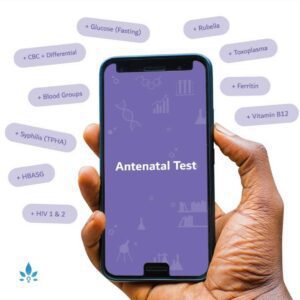Dos and Don’ts in Early Pregnancy


Congratulations, you’re pregnant! Maybe your at-home pregnancy test is positive, or perhaps your doctor has confirmed your pregnancy with a blood test. Either way, these are exciting, scary, and nerve-wracking times.
If this is your first pregnancy, life is about to completely change. If you have been pregnant before, you know the ins and outs of those early days. And as these first weeks and months of pregnancy can feel like a physical and emotional rollercoaster it’s worth a reminder of where you should focus your energy for you and your little one.
Here are 13 dos and don’ts for a healthy pregnancy
Do…
1. First things first. Take Folic acid. Folic acid can prevent neural tube defects in your baby, including spina bifida. The minute you know you are pregnant, take 400 micrograms daily for at least 12 weeks. And try to eat foods rich in folate, including leafy greens, citrus fruits, and pulses.
2. Make an appointment to see your maternal healthcare team and schedule your antenatal checks, tests, and screenings.
3. Take Antenatal (prenatal) vitamins. Vitamin D, vitamin B12, iron, iodine, calcium, and vitamin C are essential for your baby’s healthy development and must be taken in the right quantities. Antenatal vitamins are designed to include safe amounts of the vitamins and minerals your body needs most during pregnancy.
4. Eat a healthy diet. A balanced diet during pregnancy includes the five food groups – fruit, vegetables, wholegrains, lean proteins, and good fats. Remember, the maternal diet supplies all the essential nutrients to the growing fetus via the umbilical cord and placenta.
5. Sleep, rest, and sleep some more. Your body is working around the clock to create a little person. Exhaustion is totally normal, as is putting your feet up and getting lots of rest. You have a good excuse!
6. Stay active. Regular exercise that builds strength, endurance and muscle tone will help your body stay healthy and strong during pregnancy and labour.
Don’t…
7. Drink alcohol. If you drink alcohol, stop. At least for the next 9 months. When you drink, alcohol passes through the placenta to your baby. Exposure to alcohol affects your baby’s development and leads to a higher chance of miscarriage, premature birth, and low birth weight. It could also lead to fetal alcohol spectrum disorder (FADS).
8. Smoke. Put that cigarette out, or vape down, now. Smoking during pregnancy can damage your unborn baby’s brain and lungs. It increases the risk of miscarriage, preterm delivery, and low birth weight. And some studies link smoking during pregnancy and following birth with SIDS (sudden infant death syndrome).
9. Drink too much caffeine. Caffeine can cross the placental barrier and some studies say it may increase the risk of miscarriage or low birth weight. If caffeinated drinks are getting you through the day try to limit your daily intake to 200 milligrams.
10. Eat raw meat, unpasteurised dairy products, or undercooked meat and eggs. Some foods carry the risk of food poisoning, infections, and serious illness. Listeriosis and toxoplasmosis can pass to the fetus and cause severe birth defects and sometimes miscarriage. Make sure all food you eat during pregnancy is pasteurised and well-cooked.
11. Clean out the cat litter. You can still cuddle your cats, just ask someone else to take on the litter cleaning job while you are pregnant. Toxoplasmosis can be transmitted through parasites in a cat’s poo.
12. Have a sauna, hot tub, jacuzzi or steam room. According to some health experts, a significant rise in core body temperature could be harmful during the first 12 weeks of pregnancy. Doctors also warn there are risks of overheating, dehydration, dizziness, and fainting.
13. Do contact sports, scuba diving and any activities where there is a risk of falling and hurting your bump, like climbing, horse riding and skiing.
Remember, if in doubt, ask your maternal health team for advice. And if anything doesn’t feel right, don’t hesitate to contact your nearest healthcare clinic.
Nabta Health provides personalised support, resources, and clinical pathways for mothers-to-be. Get in touch if you have any questions about topics raised in this article, or any aspect of your pregnancy journey.













































